5 Powerful Self-Love Quotes to Inspire and Encourage You
Embracing Self-Love: Nourishing Quotes for Inner Peace and Happiness
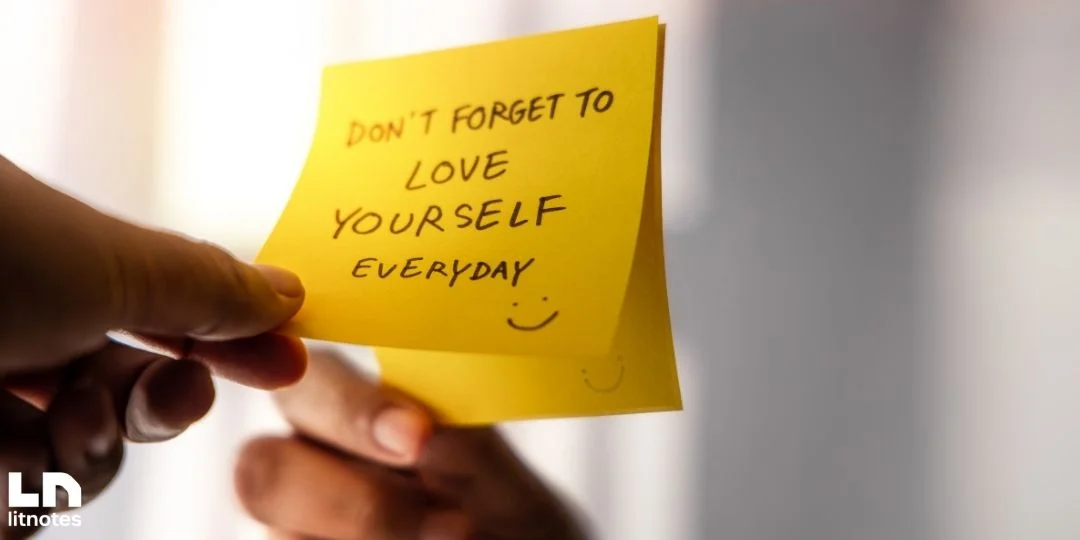
In life's vast tapestry, the embrace of self-love marks an important chapter. This brief essence illuminates quotes that are profound validations of self-love, marvellous mantras reminding each of us of our inherent worth. They invigorate our senses with an affirmation that we are enough, fostering self-esteem and emotional resilience. Harnessing the wisdom of various minds, these quotes echo the empowering sentiment; to love oneself is the beginning of a lifelong romance. Bask in this serenade of words that weave a comforting reminder: you are your most important relationship.
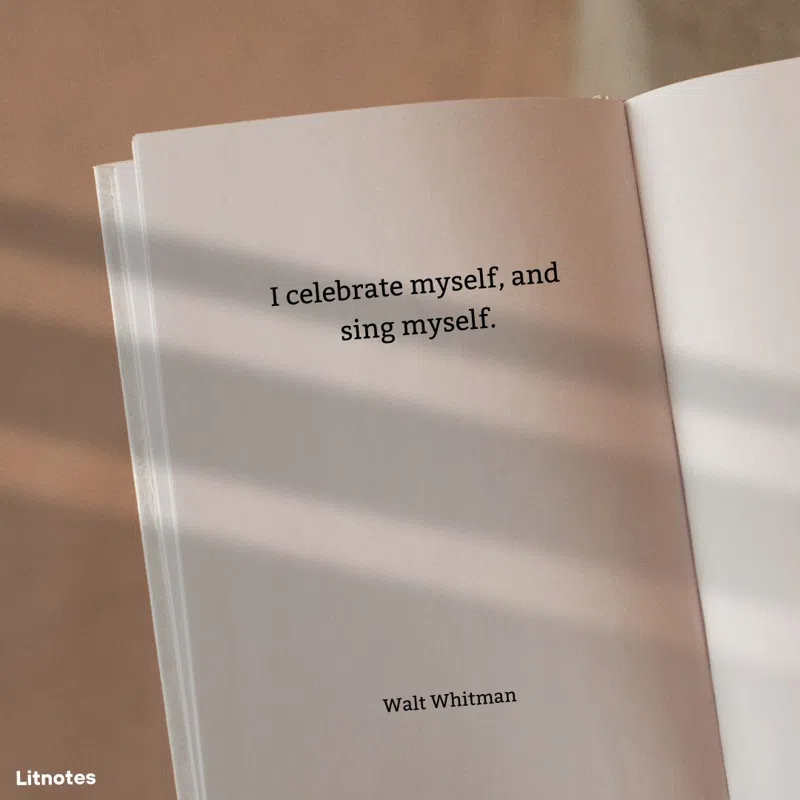
Walt Whitman is a well-regarded American poet, journalist, and humanist. His magnum opus is 'Leaves of Grass', a free-verse compilation that has seen multiple editions, each release augmenting its original 12 poems with new additions. This particular sentiment is found within 'Song of Myself', one of the key sections of this work. The excerpt demonstrates Whitman's belief in the profound significance of the individual and the essence of celebrating one's own existence. It exemplifies the central tenets of Transcendentalism, suggesting every person's inherent connection to nature, and the ultimate power of self-reliance and individualism that were so strongly emphasized in his works. Thus, reflecting upon Whitman's statement, one can explore the notion that in recognizing and rejoicing in our innate selfhood, we find the essence of human life and our place in the natural world.
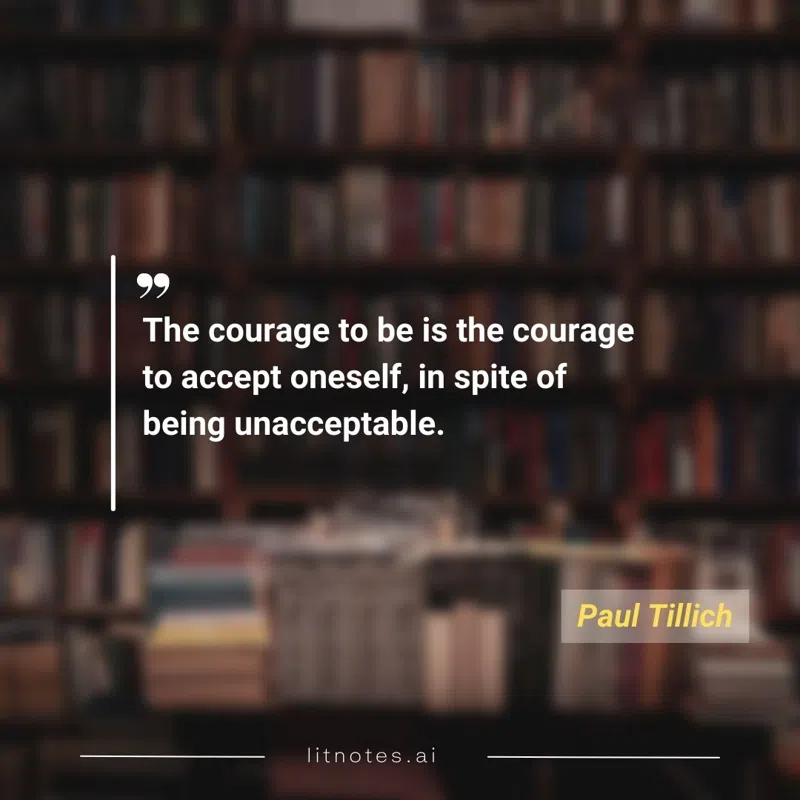
Paul Tillich, from whom the quote originates, was an influential 20th-century theologian and philosopher. Known for his groundbreaking work in the synthesis of theological themes and existential philosophy, he made significant contributions to Christian existentialism. His teachings often focus on the concept of accepting oneself, much like this particular quote encapsulates. The quote is extracted from 'The Courage to Be,' a seminal work by Tillich. The book examines numerous types of anxiety and suggests that bravery is not the absence of fear, but the ability to move forward despite it. Essentially, the quote articulates the notion that the bravest act one can perform is to accept oneself wholeheartedly, despite our apparent imperfections and flaws, a core theme in beloved Tillich's philosophical viewpoint.
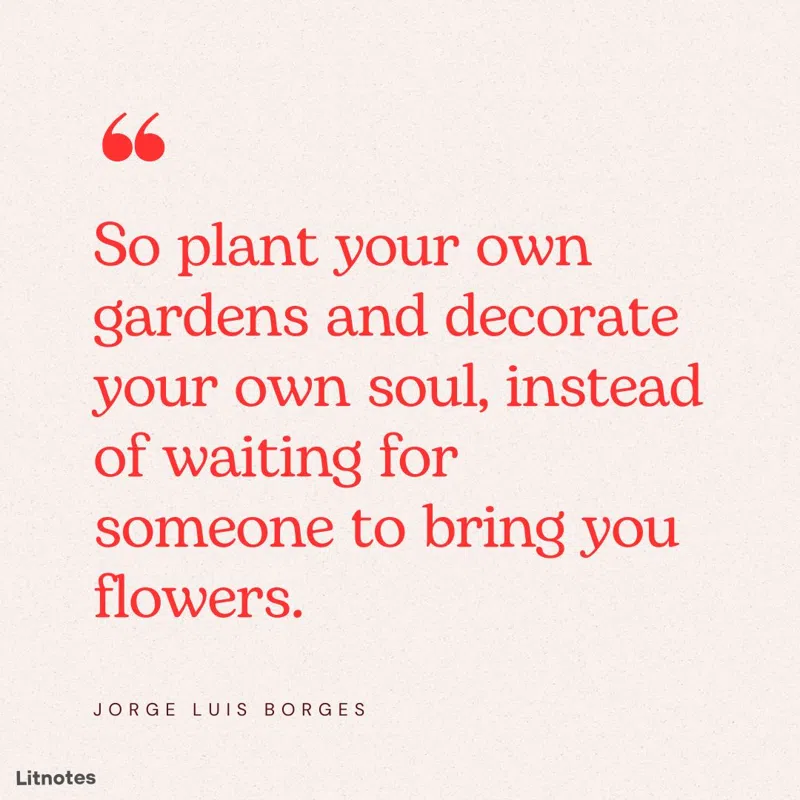
Jorge Luis Borges, the author of the profound and thoughtful quote, was an influential figure in Latin American literature. He was an Argentine short-story writer, essayist, poet, and translator, whose works have become classics in the literature world. The quote is sourced from one of his most cherished works. It essentially propagates the idea of self-reliance, encouraging individuals to cultivate their own happiness and personal growth instead of depending on others for it. A perceptive reader can discern an advocacy for embracing personal responsibilities and cultivating one's joy. This ethos is found throughout his expansive writing career and forms a significant aspect of his literary personality. The exact source of this quote, however, isn't definitive as it's often attributed to his collective works rather than a specific book. Critics and enthusiasts widely contemplate it as representative of Borges' overall philosophical perspective.
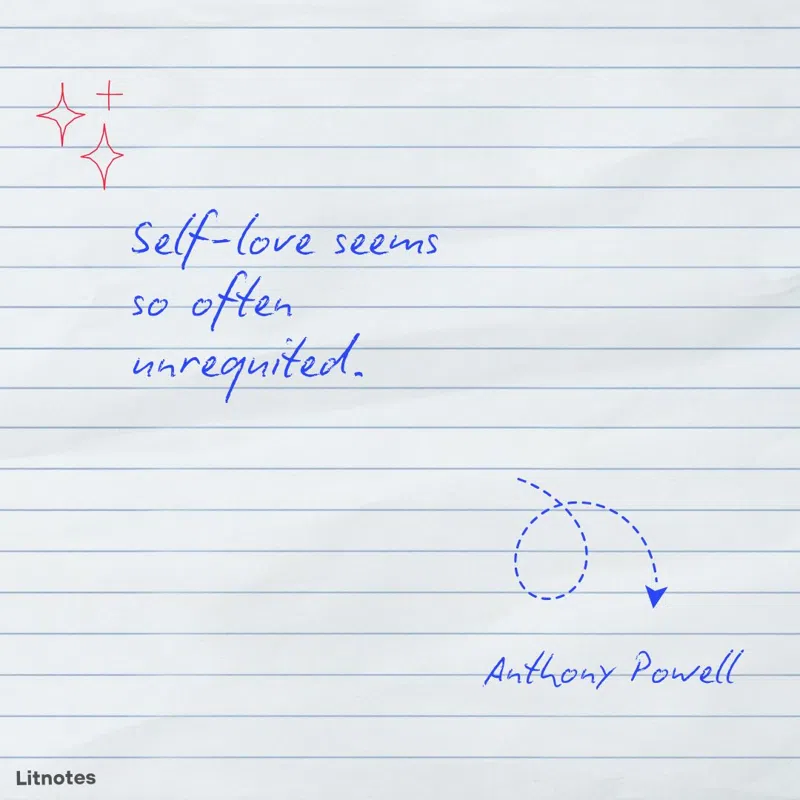
Anthony Powell, a renowned British author, has a knack for portraying the complexities of human nature and emotions. The quote mentioned here is from his book 'Books Do Furnish a Room', which is a part of his acclaimed series 'A Dance to the Music of Time'. This quote encapsulates Powell's perception of self-love and its potential pitfalls. Powell ponders on the idea of self-love and its possibility of remaining unreciprocated, which can be interpreted as the lack of acceptance or appreciation for one's self. This demonstrates how sometimes we fail to satisfy our own expectations or standards, leaving the love that we harbor for ourselves unanswered. Thus, through this quote, Powell brings forth a layered perspective on self-love and personal acceptance, and how they might not always go hand in hand. Hence, it subtly mirrors our individual struggles with self-esteem and self-worth.
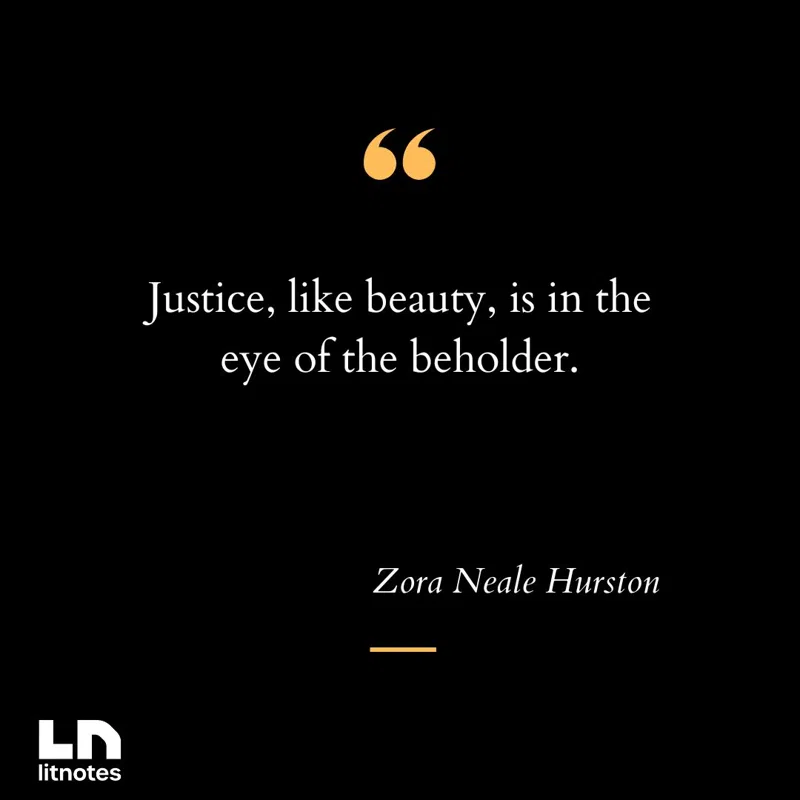
Zora Neale Hurston, an influential author during the Harlem Renaissance, hailed from the United States and was a trailblazer in her field. Noted for her determination to capture the culture of African Americans, Hurston was renowned for using her unique literary voice to advocate for racial and gender equality. Her impactful works were renowned for highlighting the experiences of African Americans, especially women. The quote of interest is from her book 'Dust Tracks on a Road,' an autobiography where she shares her experiences, thoughts, and perspectives. It is an elegy of belief regarding the subjective nature of justice, suggesting that an individual's understanding and application of justice, much like the perception of beauty, is coloured by their own experiences and perceptions. She argues that justice isn't a universally agreed upon concept but rather varies between different beholders, emphasizing the relativity of moral constructs.
Conclusion
In conclusion, embracing self-love and authenticity is crucial in life. As we reaffirm ourselves with such powerful affirmation from the quote, 'I celebrate myself, and sing myself', we acknowledge our worth and importance. Furthermore, having 'The courage to be is the courage to accept oneself, in spite of being unacceptable', helps us thrive against societal standards and pressures. The idea of nurturing oneself, suggested by 'So plant your own gardens and decorate your own soul, instead of waiting for someone to bring you flowers', builds resilience and encourages us to adopt a proactive role in caring for our emotional wellbeing. Despite the common feeling of 'Self-love seems so often unrequited', we must understand that self-love isn't always about immediate satisfaction, but long-term growth and development. For anyone struggling with understanding and adopting self-love, help is at hand with Litnotes.ai. Our platform simplifies the process of fast-book reading, effectively helping you explore vast resources on the subject of self-love. Like the perspective on justice and beauty that 'Justice, like beauty, is in the eye of the beholder', we firmly believe that understanding and insight resides within the reach of one's determination and effort. This becomes even more accessible and enjoyable when paired with innovative solutions like Litnotes.ai which enhances your reading experience and promotes self-knowledge.
Top Reading
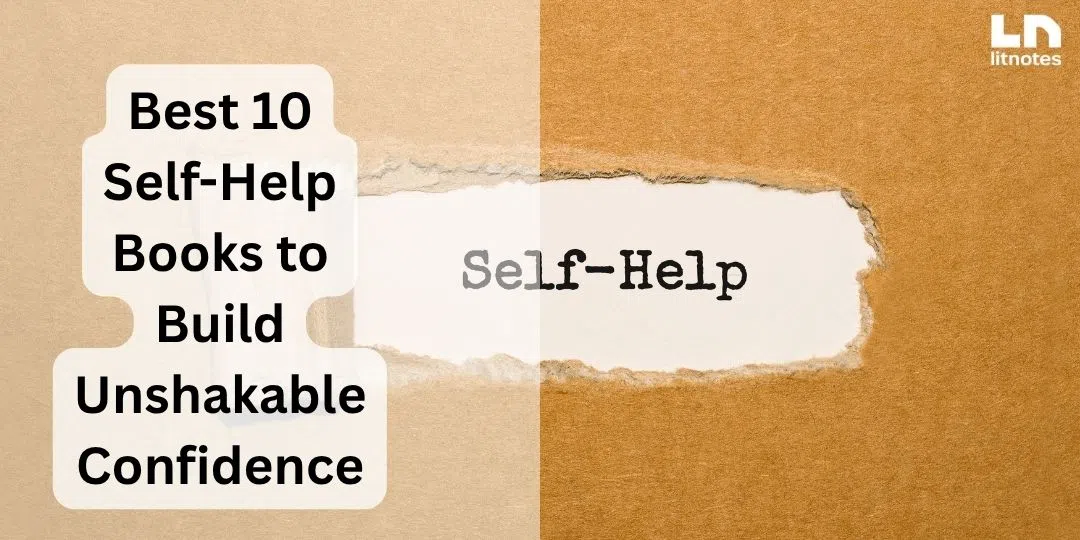
Best 10 Self-Help Books to Build Unshakable Confidence
By Draftix
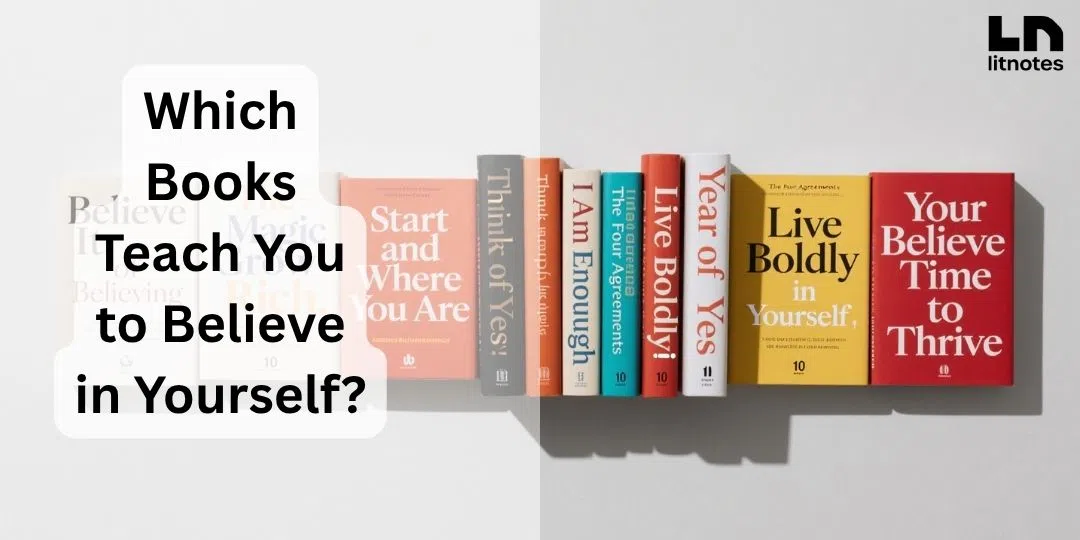
Which Books Teach You to Believe in Yourself?
By Penlet
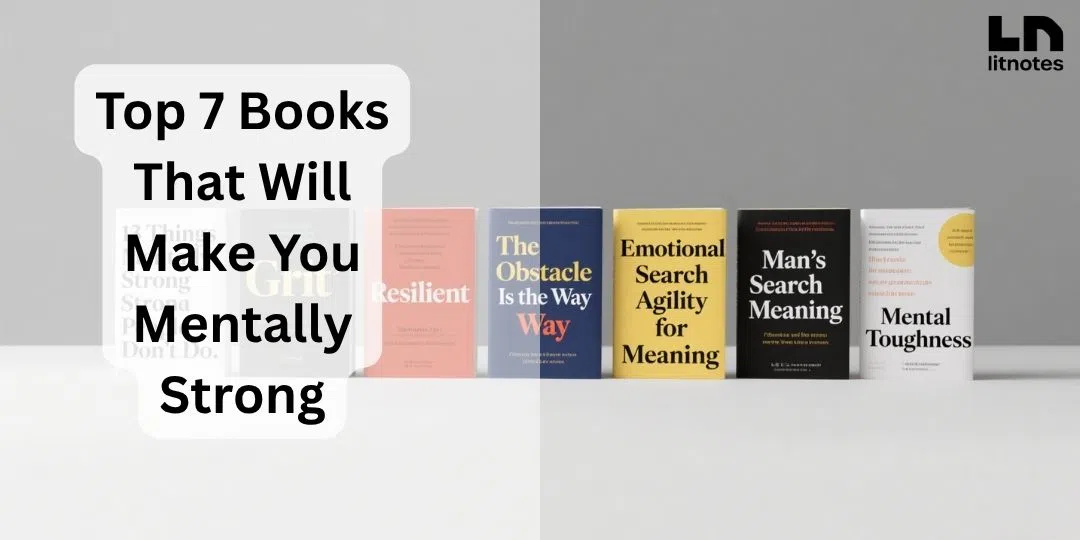
Top 7 Books That Will Make You Mentally Strong
By Scriblo
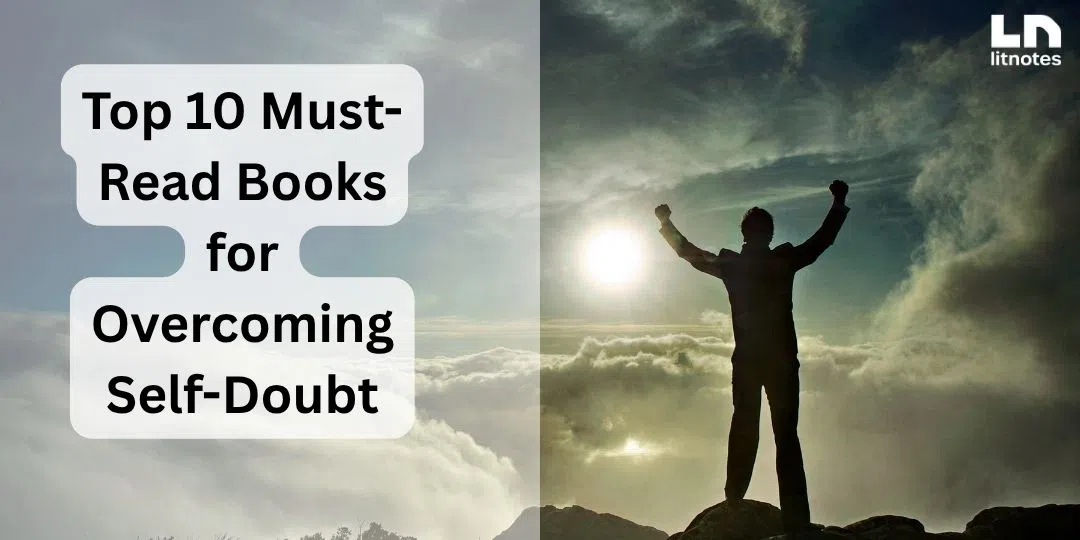
Top 10 Must-Read Books for Overcoming Self-Doubt
By Writely
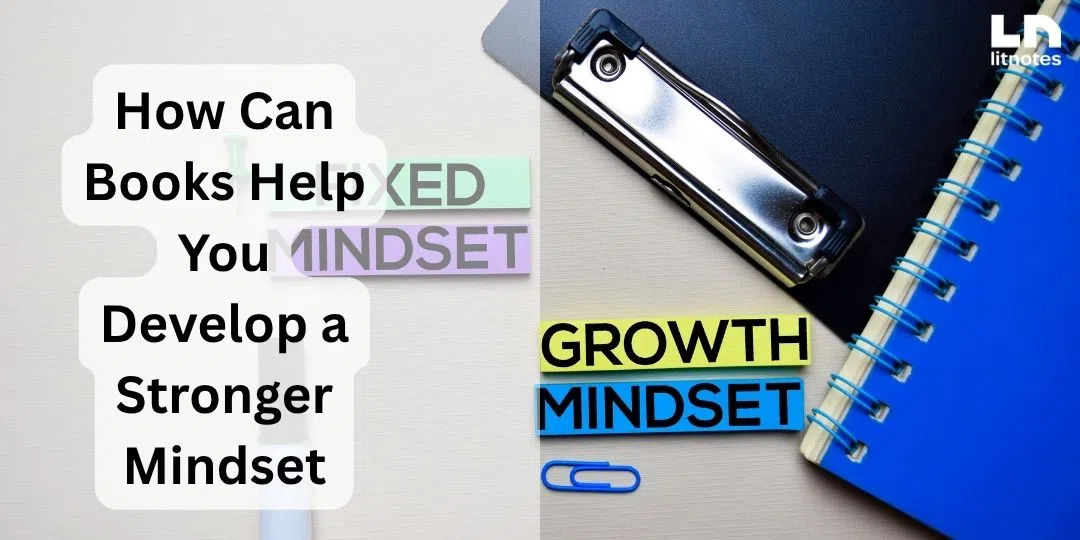
How Can Books Help You Develop a Stronger Mindset?
By Plottix
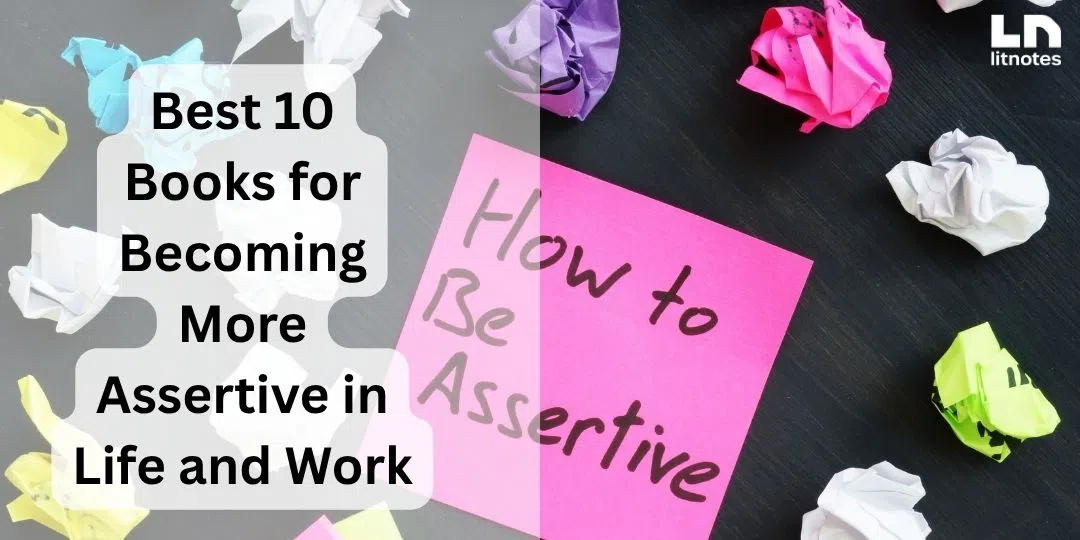
Best 10 Books for Becoming More Assertive in Life and Work
By Quotiva

How to Gain Confidence Through Reading: 10 Recommended Books
By Lexell